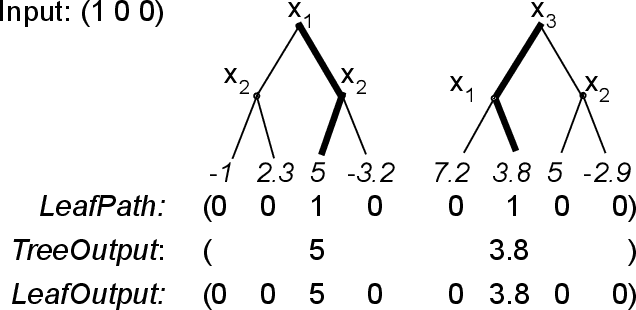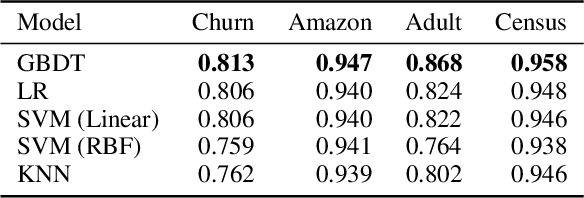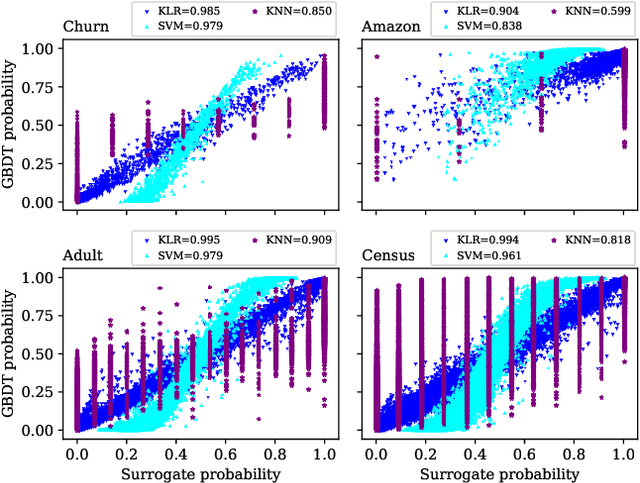TREX: Tree-Ensemble Representer-Point Explanations
Paper and Code
Sep 24, 2020



How can we identify the training examples that contribute most to the prediction of a tree ensemble? In this paper, we introduce TREX, an explanation system that provides instance-attribution explanations for tree ensembles, such as random forests and gradient boosted trees. TREX builds on the representer point framework previously developed for explaining deep neural networks. Since tree ensembles are non-differentiable, we define a kernel that captures the structure of the specific tree ensemble. By using this kernel in kernel logistic regression or a support vector machine, TREX builds a surrogate model that approximates the original tree ensemble. The weights in the kernel expansion of the surrogate model are used to define the global or local importance of each training example. Our experiments show that TREX's surrogate model accurately approximates the tree ensemble; its global importance weights are more effective in dataset debugging than the previous state-of-the-art; its explanations identify the most influential samples better than alternative methods under the remove and retrain evaluation framework; it runs orders of magnitude faster than alternative methods; and its local explanations can identify and explain errors due to domain mismatch.
 Add to Chrome
Add to Chrome Add to Firefox
Add to Firefox Add to Edge
Add to Edge